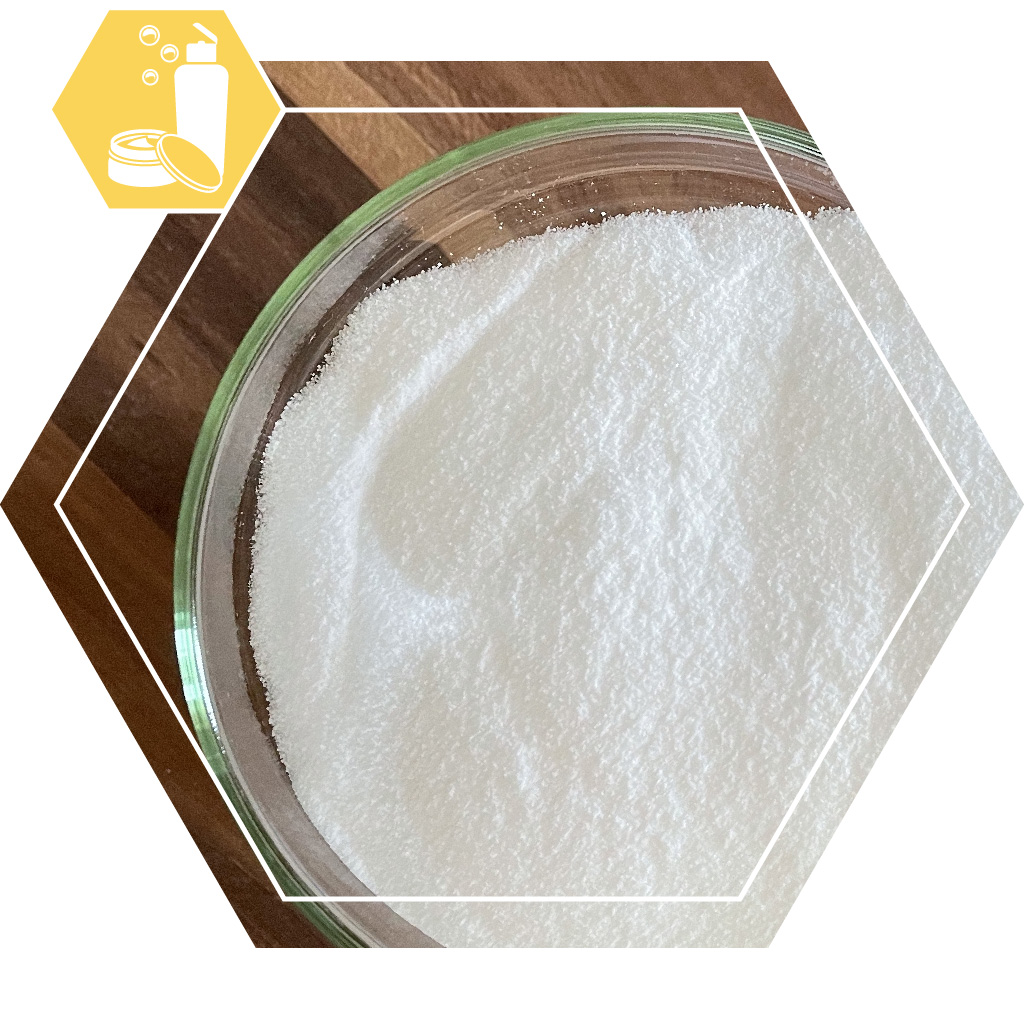Cosmetics raw material
Description
Disodium EDTA is a chelating agent for use in cosmetics.
Use
Disodium EDTA is best added to water used in cosmetics. For example, to the water phase of creams. In addition, it can also be added to soap, shampoo and other cosmetics that contain water: just dissolve. A usual dose is 0.1%, or 1 gram per kg of end product.
De Hekserij does not sell any material intended for internal use. This product is absolutely NOT an exception. Please also refer to our general product information.
Dry, so DO NOT refrigerate. Store in a cool, dark place in a well-closed container. Keep out of reach of children.
Properties
Disodium EDTA is an almost white fine crystal powder. It is a chelating agent, ie it will includes certain metals that may occur in a raw material. It therefore enhances the effect of antioxidants such as tocopherol. Small amounts of metals such as iron, copper and manganese can affect antioxidants. In theory, a single iron molecule can use up all the antioxidant in a product. In practice, this will not happen quickly, but there is often more than 1 molecule of iron in a cream or other product to be protected. This iron is contained in raw materials as a micro-pollutant, even water usually contains some iron and other metals.
Since chelating agents can also liberate insoluble metals from their compounds, disodium EDTA should not be used in products containing such compounds. Think of zinc oxide and pigments based on iron or chromium.
Disodium EDTA dissolves sufficiently well in water and lowers the pH slightly. It can be used in a wide pH range (3-12).
Sustainability
Disodium EDTA is a synthetic product that does not occur in nature. The raw materials it is made of include natural gas, air and rock salt. It is not very easy to decompose, but also does little harm to the environment.
Packaging
Disodium EDTA is packaged in white plastic (PP) jars with lids.
Dangers
Disodium EDTA is classified as a hazardous substance according to REACH/CLP, with the following characteristics:
WARNING
H332 - Harmful by inhalation.
H373 - May cause damage to the respiratory system through prolonged or repeated inhalation.
For that reason, it may be advisable to wear a suitable mouth cap.
Danger of a completely different nature is misuse, for example as a detox product that is swallowed or even injected. First of all, if you want to use it for such an application, buy a suitable pharmaceutical grade and not our cosmetic grade. Even then, long-term use remains risky. Disodium EDTA does not only bind heavy metals. It also binds necessary minerals for health such as iron, calcium and magnesium. Therefore always consult a doctor before use and in that case use a suitable pharmaceutical grade.
Codes
Item number: 10390
English name: Disodium EDTA
EC number: 205-358-3
CAS Number EU: 139-33-3
INCI: DISODIUM EDTA




